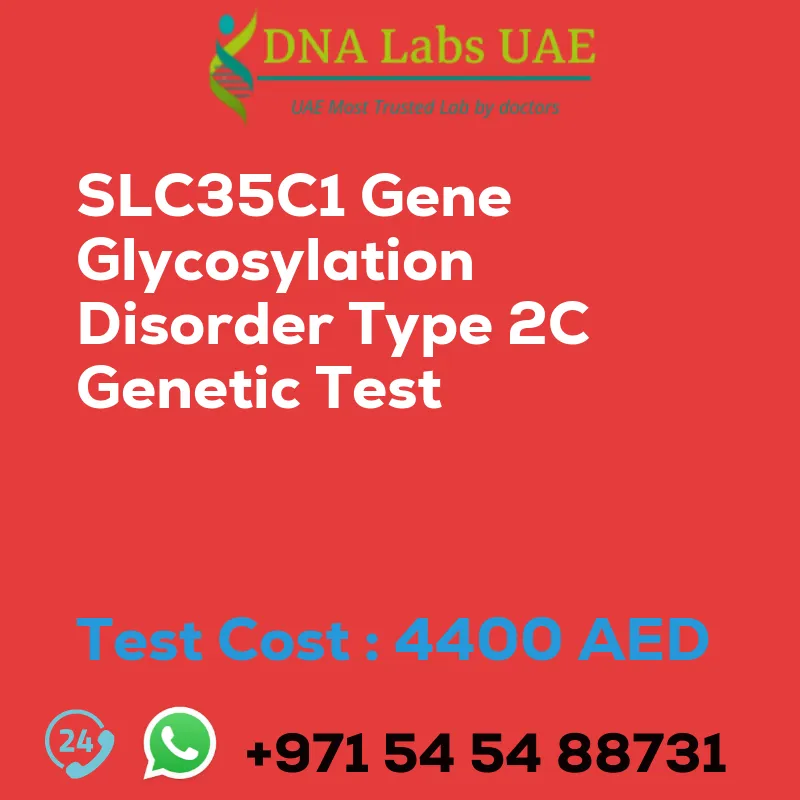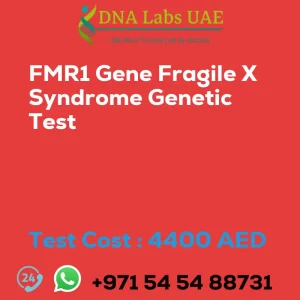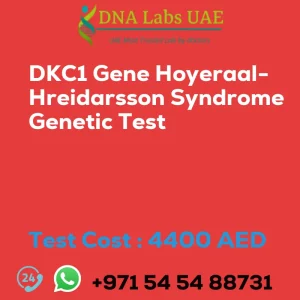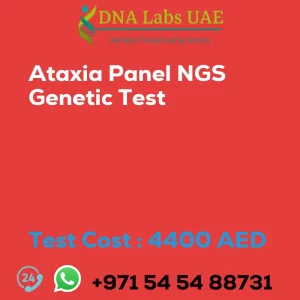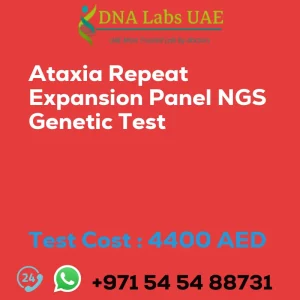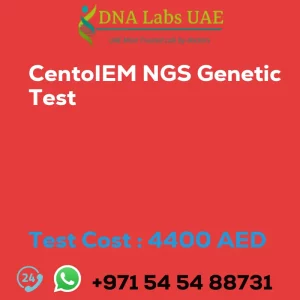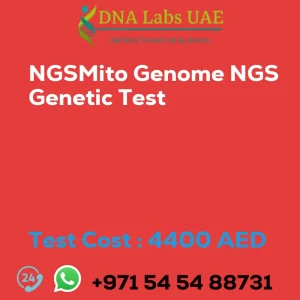SLC35C1 Gene Glycosylation Disorder Type 2C Genetic Test
At DNA Labs UAE, we offer the SLC35C1 Gene Glycosylation Disorder Type 2C Genetic Test to help diagnose and understand this rare genetic disorder. The test is priced at 4400.0 AED and can be conducted using a blood sample, extracted DNA, or one drop of blood on an FTA card.
The report for this test is typically delivered within 3 to 4 weeks, and the method used is NGS (Next-Generation Sequencing) Technology. This test specifically focuses on neurological disorders and is conducted by our team of expert neurologists in the Genetics department.
Pre Test Information
Prior to conducting the SLC35C1 Gene Glycosylation Disorder Type 2C Genetic Test, it is important to gather the clinical history of the patient. Additionally, a genetic counseling session is recommended to draw a pedigree chart of family members affected by this disorder.
Test Details
The SLC35C1 gene is responsible for encoding a protein called UDP-galactose transporter, which plays a crucial role in the process of glycosylation. Glycosylation involves the addition of sugar molecules to proteins or lipids, forming glycoproteins or glycolipids. These molecules are essential for cell signaling, cell adhesion, and protein folding.
Mutations in the SLC35C1 gene can lead to a rare genetic disorder known as Glycosylation Disorder Type 2C (CDG2C). This disorder is characterized by developmental delay, intellectual disability, seizures, and various physical abnormalities. The severity of symptoms can vary among individuals with the same mutation.
NGS genetic testing, also known as Next-Generation Sequencing, is a powerful DNA analysis technique that can identify mutations in multiple genes simultaneously. This type of testing is particularly useful for diagnosing genetic disorders like CDG2C and identifying carriers of the mutation within families with a history of the disorder.
NGS testing can also provide valuable information about the specific mutation in the SLC35C1 gene. This information can be helpful in predicting the severity of the disorder and guiding treatment decisions.
If you suspect that you or a family member may have Glycosylation Disorder Type 2C, we recommend considering the SLC35C1 Gene Glycosylation Disorder Type 2C Genetic Test. Our team of experts at DNA Labs UAE is dedicated to providing accurate and timely genetic testing services.
| Test Name | SLC35C1 Gene Glycosylation disorde type 2C Genetic Test |
|---|---|
| Components | |
| Price | 4400.0 AED |
| Sample Condition | Blood or Extracted DNA or One drop Blood on FTA Card o |
| Report Delivery | 3 to 4 Weeks |
| Method | NGS Technology |
| Test type | Neurological Disorders |
| Doctor | Neurologist |
| Test Department: | Genetics |
| Pre Test Information | Clinical History of Patient who is going for SLC35C1 Gene Glycosylation disorde type 2C NGS Genetic DNA Test A Genetic Counselling session to draw a pedigree chart of family members affected with SLC35C1 Gene Glycosylation disorde type 2C |
| Test Details |
The SLC35C1 gene is responsible for encoding a protein called UDP-galactose transporter, which is involved in the process of glycosylation. Glycosylation is the process by which sugar molecules are added to proteins or lipids to form glycoproteins or glycolipids, respectively. These molecules play important roles in cell signaling, cell adhesion, and protein folding. Mutations in the SLC35C1 gene can lead to a rare genetic disorder known as glycosylation disorder type 2C (CDG2C). This disorder is characterized by developmental delay, intellectual disability, seizures, and various physical abnormalities. The severity of the symptoms can vary widely, even among individuals with the same mutation. NGS (next-generation sequencing) genetic testing is a type of DNA analysis that can identify mutations in multiple genes simultaneously. This type of testing can be useful for diagnosing genetic disorders like CDG2C, as well as for identifying carriers of the mutation in families with a history of the disorder. NGS testing can also provide information about the specific mutation in the SLC35C1 gene, which can be helpful for predicting the severity of the disorder and guiding treatment decisions. |

